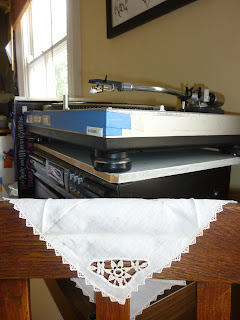I've just been cataloguing an intriguingly named box called 'unattached and individual' which has been an absolute treasure trove of unusual and interesting letters from individual members of the National Union of Women Teachers. I've got loads more letters from the box to write about but I'll be doing that on over at the Newsam News blog.
 |
| Image from the NUWT Collection, © Institute of Education |
"Enclosed is a specimen of my book. I have myself financed the publishing, partly because it is difficult to get a book taken up during these times unless one has a name such as Enid Blyton".
She goes on to explain that her book is for young children, to help them learn basic vocabulary and that it has so far been successful, being taken up by schools in the area where she lives, and now in its third print edition. The letter is enquiring if she can sell her booklet at NUWT conference.
I loved the cover of the booklet, with the basic line drawings of various objects. Then when I opened it up this page in particular caught my eye.
 |
| Image from the NUWT Collection, © Institute of Education |
I do like the word 'frock' though I'd feel a bit strange using it to describe my own dresses, is it just me or does 'frock' now have a connotation of being used to criticise a dress, or used a bit sarcastically? I love that 'kilt' is in there as an item of everyday clothing as now kilts are things worn by men and only at weddings. However I remember seeing photographs of my mum, and my grandmother, as young girls wearing kilts and I know that for a long time a kilt was part of most young Scottish girls wardrobe. Can anyone tell me what a comb is? Is it a shortened version of combination? And coming to that, what are combinations? A pixie hood sounds wonderfully romantic. I know I could just google it but I'd rather build my own picture in my head of what a pixie hood is! Everything isle there is pretty self explanatory though I wonder if words like Mackintosh and Wellington are the same in other English speaking countries as in the UK? as in, our 'trousers' = American 'pants'
















